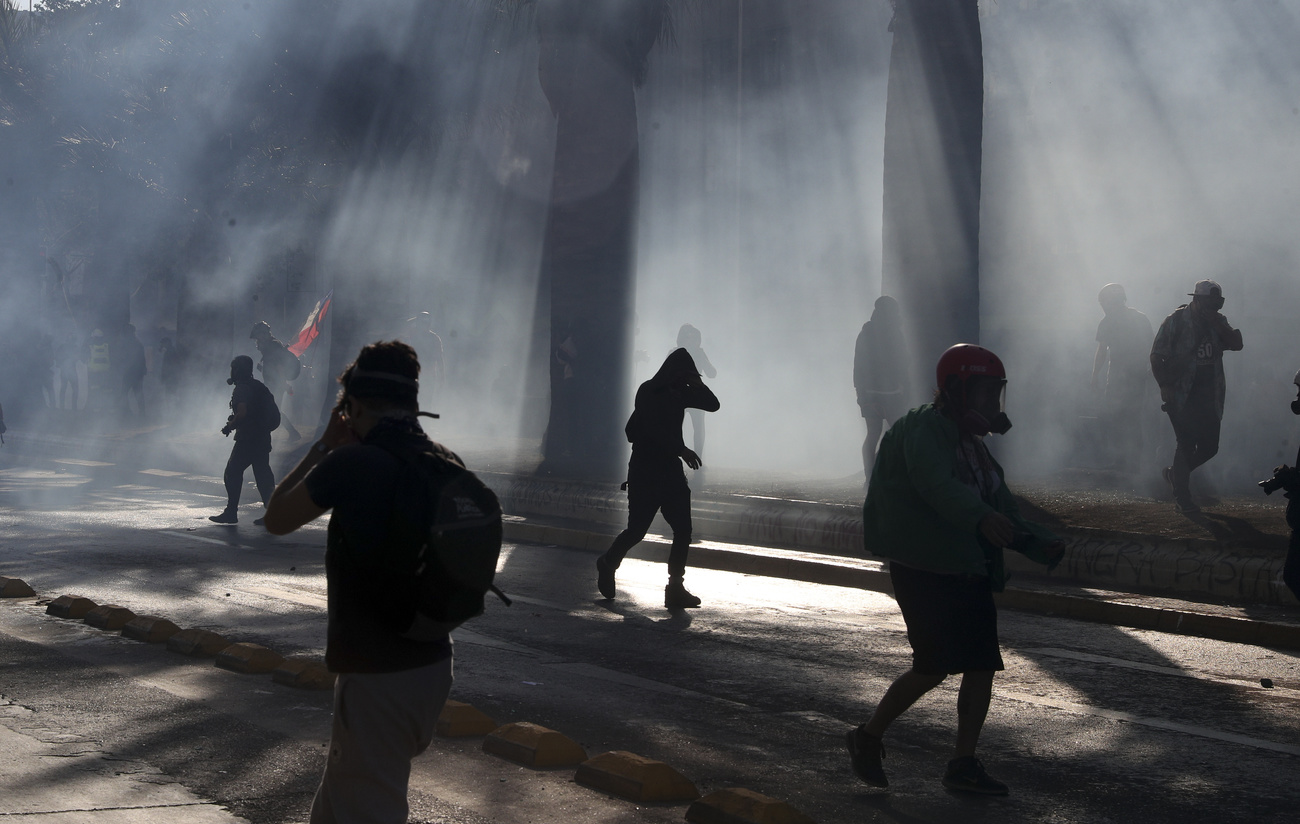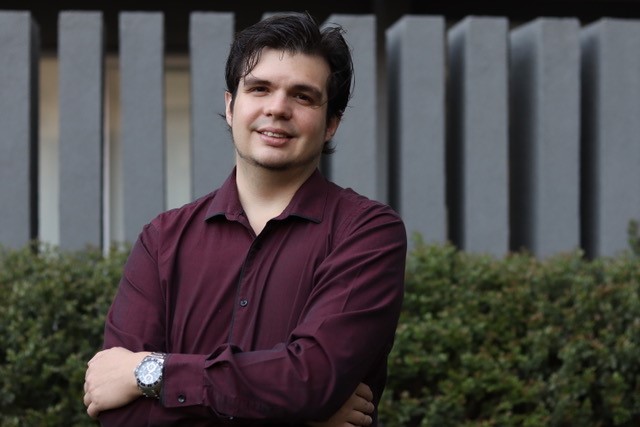
Chile’s constitutional vote offers window to democratic future

Chile wants to get rid of a constitution that dates back to Augusto Pinochet’s dictatorship. The debate about a new, democratic basic law has awakened Chilean interest in a country on the other side of the world – Switzerland. The children of Swiss emigrés – both in Chile and in Switzerland – are partly to thank for this.
Ricardo Santana works in an anonymous office building in the Chilean capital, Santiago. Aged 32, he is a public servant in the financial department of the Chilean Foreign Ministry.
He oversees the diplomatic service’s activities concerning the Asia-Pacific Economic Cooperation, APEC. He grew up in the southern Chilean province of Patagonia, also known as Tierra del Fuego – the sparsely populated strip of Latin American territory that is closest to the South Pole.

“When I was born, Pinochet was already on the way out,” Santana says. Shortly after Santana’s birth, 56% of Chileans voted against extending the dictator’s term of office in a historic referendum on October 5, 1988. Pinochet had seized power after a bloody military putsch against the democratically elected president, Salvador Allende in 1973.
Chile – a country more than 4,000 kilometres long wedged between the Andes and the Pacific – had diverged from the path to democracy that many other countries with authoritarian leaders were taking at that time.
Three decades of stagnation
Unlike many of the former communist states in East Europe or earlier military dictatorships like South Korea and Taiwan, much remained unchanged in Chile even after the people forced Pinochet to resign and democratic elections took place. “The Pinochet constitution of 1980 is still in force today,” says Santana. “But hopefully not for much longer,” he adds.
In a binding referendum on October 25, almost 15 million Chilean voters will decide whether their pre-democracy constitution should be replaced. In a second referendum, they will decide who should write the new constitution.
There are two possibilities: firstly, that it should be drafted by a new mixed council half comprised of members of parliament, and half of citizens specially selected for this role. Or secondly, that a new constitutional council, comprising an equal number of men and women, should be selected in direct elections. The latter would be a first in democratic politics worldwide.
The Swiss in South America
According to official statistics (2019), some 46,418 Swiss nationals are registered as living in South America. Of these, 5,490 live in Chile. After Brazil and Argentina, this is the third largest Swiss community in the region.
Young generation demands bigger say
“At last we are getting a real opportunity for change,” says Santana. He belongs to a young generation of Chileans who have been repeatedly promised fundamental reforms for a long time – for example in the heavily privatised education system – without anything fundamental really changing. This is one of the reasons for repeated youth riots and protest movements over the past ten years.
These have been brutally quashed by the police, which is still highly militarised – a legacy of the Pinochet era. Even now, just before the constitutional referendum, young people across the country are protesting, demanding a bigger say in how the country is run.
It is generally expected that the electorate will vote yes to both a new constitution and a new, gender-equal constitutional council to be elected early next year. But many people in the country are already thinking one step further. They include Santana, whose second family name is Friedli. “My mother’s grandparents emigrated from Marbach in the Rhine Valley region of St Gallen to Patagonia,” Santana says. But as a fourth generation immigrant he no longer has a right to Swiss citizenship.
Even so, in the current debate over the future shape of a new Chilean constitution, he draws inspiration from the home of his ancestors, almost 15,000 kilometres away. “I am primarily interested in the civil rights offered by direct democracy,” the young civil servant says.
“Switzerland is an inspiration”
Santana, a Patagonian with Swiss and Croatian roots, is not alone. A new platform, Vinculante.cl, was set up by a group of young Chilean IT specialists and experts committed to promoting participative and direct democracy in Chile.
“The upcoming process to draft a new constitution is a window of opportunity,” says Norbert Bilbeny, one of the initiators of Vinculante. “The Swiss experience with civil rights is a huge inspiration and point of reference for us.” The aim is to strengthen knowledge about the opportunities for Chile offered by modern direct democracy. The organisation’s ambitious goal is to achieve this before the constitutional council starts work. This is due to happen in the spring – or to be more exact, when autumn begins in Chile.
Long-term observers of Chilean politics are, however, sceptical. Eduardo Schindler, once a finance expert in Santiago, has lived in Switzerland since the early 1980s. In Switzerland, where he has taken citizenship, he has learned to value and exercise civil rights by participating in direct democracy. Schindler was so enthusiastic about direct democracy that he has tried repeatedly to kindle similar enthusiasm among his old colleagues and contacts on the other side of the globe.
“But in the last 30 years, the political elite in Chile has made no effort to empower its citizens,” he concludes. Schindler compares the Chilean people to an adult whose mother still dresses him in children’s clothes.
A gaping wealth divide
Schindler, who now lives in Kilchberg on Lake Zurich, says his home country is riven by enormous social divides. “In comparison with other Latin American countries, we have a very highly developed and competitive economy. But our democracy remains in the cradle,” he says.
The gap is particularly wide in the distribution of wealth. More than half of the 19 million Chileans have to get by on less than CHF500 ($553) per month.
How the question of democracy is handled in the two years leading up to the planned final referendum on a new constitution will be decisive. And not just by the Chile authorities, but also by its people. Santana stresses that “a democratic Chile is only possible if we become a fairer, more equal society.”

In compliance with the JTI standards
More: SWI swissinfo.ch certified by the Journalism Trust Initiative


























You can find an overview of ongoing debates with our journalists here . Please join us!
If you want to start a conversation about a topic raised in this article or want to report factual errors, email us at english@swissinfo.ch.